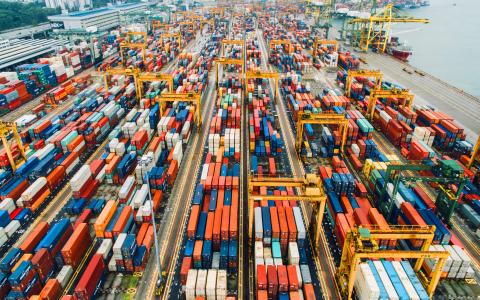
(Yahoo!Finance) - Snarled supply chains were a massive aspect of pandemic-era disruptions globally, and ongoing issues may continue to wreak havoc in the U.S. economy despite recent easing.
“It's still a major problem," S&P Global Chief U.S. Economist Beth Ann Bovino told Yahoo Finance Live (video above). “It's one of the biggest factors that are causing this where we are today. We have seen some signs of softness, some signs of moderation — but nowhere near what we need to get to."
Earlier this week, Ford (F) warned that supply chain pressures continued to hinder car companies and would carry on well into 2023.
"Supply chain tightness not over yet," Adam Jonas, equity analyst at Morgan Stanley, wrote in a note. "While we have been hearing from both OEs [Original Equipment Supplier] and suppliers about the marginal improvement of the supply chain, Ford's announcement shows that we are not yet out of the woods."
Over the past few years, persistent bottlenecks rippled through the balance sheets of businesses in the form of higher costs, lower sales and lost growth opportunities when supply shortages have slowed down production volume.
More recently, labor conflicts are further complicating matters: A near-strike among U.S. railroad workers caused reduced services in preparation for the potential strike, and ongoing contract talks involving U.S. West Coast dockworkers have had some industry experts fearing that negotiations could take longer to resolve.
Inflation is another factor, Bovino said. The Federal Reserve raised interest rates 75 basis points for the third consecutive time on Wednesday in an ongoing fight against stubbornly elevated price increases.
"Whatever inflation target you look at, it's going in the wrong direction," Bovino said. "And that's why the Fed needs to move. We see the risk of recession next year as a toss up. But the Fed still has to fight. It still has to fight inflation. And I would say right now that the disease is still worse than the cure."
By Dani Romero · Reporter



